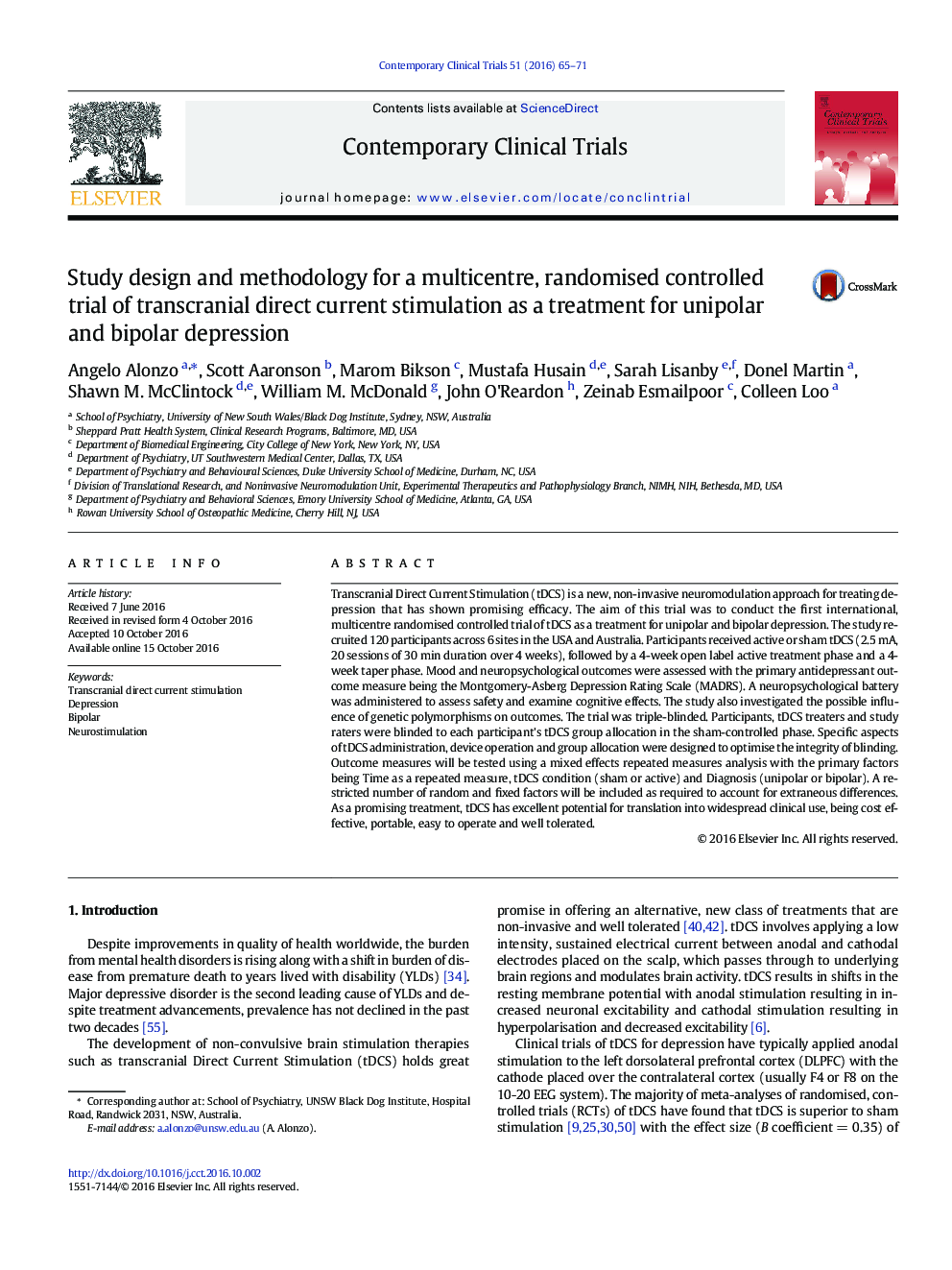| Article ID | Journal | Published Year | Pages | File Type |
|---|---|---|---|---|
| 6150395 | Contemporary Clinical Trials | 2016 | 7 Pages |
Abstract
Transcranial Direct Current Stimulation (tDCS) is a new, non-invasive neuromodulation approach for treating depression that has shown promising efficacy. The aim of this trial was to conduct the first international, multicentre randomised controlled trial of tDCS as a treatment for unipolar and bipolar depression. The study recruited 120 participants across 6 sites in the USA and Australia. Participants received active or sham tDCS (2.5Â mA, 20 sessions of 30Â min duration over 4Â weeks), followed by a 4-week open label active treatment phase and a 4-week taper phase. Mood and neuropsychological outcomes were assessed with the primary antidepressant outcome measure being the Montgomery-Asberg Depression Rating Scale (MADRS). A neuropsychological battery was administered to assess safety and examine cognitive effects. The study also investigated the possible influence of genetic polymorphisms on outcomes. The trial was triple-blinded. Participants, tDCS treaters and study raters were blinded to each participant's tDCS group allocation in the sham-controlled phase. Specific aspects of tDCS administration, device operation and group allocation were designed to optimise the integrity of blinding. Outcome measures will be tested using a mixed effects repeated measures analysis with the primary factors being Time as a repeated measure, tDCS condition (sham or active) and Diagnosis (unipolar or bipolar). A restricted number of random and fixed factors will be included as required to account for extraneous differences. As a promising treatment, tDCS has excellent potential for translation into widespread clinical use, being cost effective, portable, easy to operate and well tolerated.
Related Topics
Health Sciences
Medicine and Dentistry
Medicine and Dentistry (General)
Authors
Angelo Alonzo, Scott Aaronson, Marom Bikson, Mustafa Husain, Sarah Lisanby, Donel Martin, Shawn M. McClintock, William M. McDonald, John O'Reardon, Zeinab Esmailpoor, Colleen Loo,
